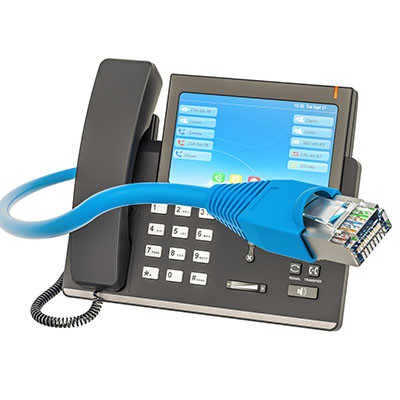JS Business Solutions Blog
Communications are huge for a business, and in the course of doing business, no other communication tool is as valuable as the telephone. Today’s businesses have a real choice on how they want to purchase their telephone system, and the more your business relies on collaboration and innovative communications tools such as video conferencing, the more it becomes evident that VoIP is the best option. Today, we’ll explain how VoIP can bring substantial value to your business.
For years, traditional telephone systems have been a cornerstone of office communication. However, many companies have yet to update their phone systems to match the evolving needs of the modern workplace. Today, we explore how Voice over Internet Protocol (VoIP) is revolutionizing business telephone systems.
Businesses rely on their communications infrastructures to function. If your communications infrastructure is not working as intended, it’s felt across the organization, as it’s often a department-wide solution. One way you can make your communications infrastructure more streamlined without a load of extra costs is with VoIP, or Voice over IP. The right system will help you get more out of your telephone systems to improve communications for the entire business.
“Please listen carefully as our menu options have changed…”
Sound familiar? It’s one of the most common catchphrases of the modern business phone system prompt. It might be a little cliche, but at least it’s not among the worst sins your phone system could be committing that is preventing your business from potential success.
Businesses depend on their communication infrastructures to work with clients, vendors, and their staff. Depending on the specific needs of the company, a business might implement any number of communication solutions, all of which have various strengths, weaknesses, and uses. We’ll walk you through some of the most common communication solutions, as well as why you might want them for your company.
VoIP, the shortened form of Voice over Internet Protocol, can be considered the latest and greatest in telecommunication, a solution that is far superior to traditional landlines. Some businesses have embraced this technology with open arms, whereas others still cling to their landlines like their lives depend on it. At the end of the day, relying on your landline when a better solution exists is no different from throwing money away.
Your landline telephone may have once been a prominent part of your business’ communication infrastructure, but chances are that it’s fallen on hard times since you last used it. In fact, you might be surprised to find that there are quite a few arguments against using a landline for your organization’s phone system, especially with more modern tools eclipsing it in usefulness.
Businesses have long used telephony solutions of some sort, but the traditional landline is an archaic piece of technology in the modern office. You can take your organization to the next level with a more dynamic and flexible solution, one that has the same features without all of the headaches associated with traditional telephone systems. A Voice over Internet Protocol (VoIP) solution can completely change your communications for the better.
Businesses of all shapes and sizes rely on the telephone to support their operations, which has historically required no small investment on their part. Today, however, there is a much more cost-effective option in Voice over Internet Protocol (also known as VoIP). Let’s consider a few reasons that businesses should see VoIP as the superior option.
Nowadays, there is little more important to a business than communication, especially when it comes to keeping your clients and customers in the loop. Even in the best of times, this kind of communication is critical. Let’s review a few communication best practices that you and your team should always keep in mind for this week’s tip.
For the small business owner, this has to go down as one of the most challenging periods in recent memory. Many of the more fortunate businesses have shifted their operations remotely as stay-at-home orders were in place with varying degrees of success. Regardless of where your business is in relation to normal, you’ll always be looking for solutions that will both reduce costs and bring more dynamic functionality to your business. One such solution is hosted VoIP.
A quick Google search for “the most important thing for a company to be successful” kicks back a huge number of results - with answers ranging from “effective team management” to “sales skills” to “good decision making” to “strong relationships.” What do the vast majority of these answers have in common? They all rely on effective communications skills. Considering this, it seems prudent to encourage the kind of communication that nurtures success.
Many business owners like to crunch the numbers in order to fully understand where their hard-earned money is going. Essential business communication tools are just one of the things that are under your expense's category. However, phone service is dwindling across the globe, much in part due to the benefits associated with VoIP, or Voice over Internet Protocol.
If you have access to a phone, chances are you’ve received a spammy robocall. In fact, you’ve probably received a bunch… but why? And how are these robocalls able to hide behind what looks to be a local number? Unfortunately, it’s because the scammers behind these robocalls are using a helpful business tool… Voice-over-Internet-Protocol telephony, also known as VoIP.
Remember the good old days of your office’s corded telephone solution that was ringing off the hook every minute of the day? Granted, you can only look back on the good old days when they are behind you. If you need to bring business communications into the 21st century, you should consider implementing a Voice over Internet Protocol solution.






















